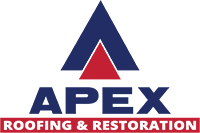A roof inspection report is a comprehensive document provided by professional roofing contractors after a thorough evaluation of your roof’s condition. This report is a valuable tool that offers homeowners or property managers essential information about the current state of their roof. Here’s what you can expect from a typical roof inspection report:
1. Roof Condition Assessment: The report will include a detailed assessment of your roof’s condition. This will encompass the overall state of the roofing materials, such as shingles, tiles, or metal, and the integrity of the underlying structure. The inspector will identify any visible damage or areas in need of repair.
2. Inspection Findings: The report will summarize the inspector’s findings. It will include a breakdown of any issues, such as leaks, damaged flashing, or missing shingles, and may include photographic evidence to illustrate these problems.
3. Recommendations: Based on the inspection findings, the report will provide recommendations for necessary repairs, maintenance, or potential replacements. This section will outline the urgency of the repairs and may offer a timeline for addressing specific issues.
4. Cost Estimates: In many cases, the report will include cost estimates for the recommended repairs or replacements. These estimates can help you plan your budget and prioritize essential roofing work.
5. Roof Life Expectancy: The report may include an assessment of your roof’s remaining lifespan. This information is valuable in planning for future roofing projects and helps homeowners anticipate when a roof replacement may be necessary.
6. Safety Concerns: If the inspector identifies any safety concerns related to your roof, such as structural issues, they will be outlined in the report. It’s crucial to address safety concerns promptly to prevent accidents or further damage.
7. Warranty Information: If your roof is under warranty, the report may include information about the warranty coverage and how to proceed with a claim if necessary.
8. Maintenance Recommendations: To extend the life of your roof, the report may provide maintenance recommendations. These suggestions can include tasks such as regular cleaning, gutter maintenance, and addressing small issues before they escalate.
9. Documentation: A well-structured roof inspection report should be well-organized, easy to understand, and professionally presented. It is a legal document that can be used for insurance claims, real estate transactions, or negotiations with roofing contractors.
10. Contractor Contact Information: The report may include contact information for the roofing contractor who conducted the inspection. This makes it easy to reach out for further discussion, scheduling repairs, or seeking clarification on any report details.
A thorough roof inspection report serves as a roadmap for maintaining and ensuring the longevity of your roof. It provides valuable insights, recommendations, and cost estimates that help homeowners make informed decisions regarding the care and maintenance of their roofing system. Regular roof inspections, accompanied by detailed reports, are key to preserving the integrity of your home and preventing costly repairs down the line.
